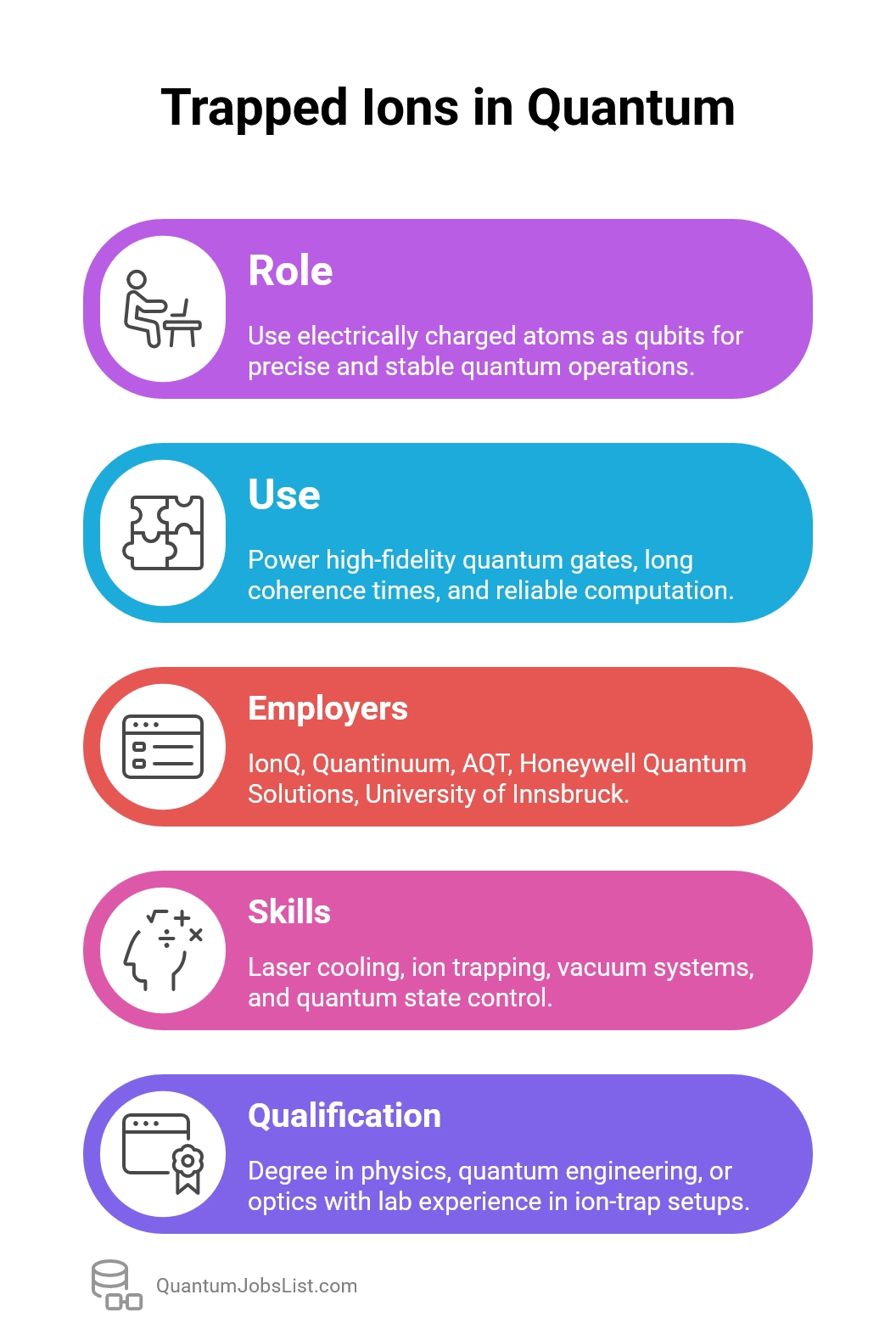Trapped Ions Jobs













































Search jobs
Know the Basics
A quantum computing approach where individual atoms (ions) are held in place using electromagnetic fields & lasers manipulate them to perform calculations, like building with LEGO blocks that float in mid-air.
It’s like a marathon race where we can still turn around and see the start line. David J. Wineland, Physicist
What does a trapped ion physicist do in their job?
These roles include designing experiments, coding quantum functions, and optimizing the operation of ions as qubits. You will work on laser systems, Master control of lasers and control systems to manipulate, hold, and calibrate ions to perform specified computations, and control the interaction of ions to execute computations.
How much do trapped ion specialists earn?
Entry-level jobs pay around $80,000-110,000 a year, if you have the right technical background; while scientists with experience can earn $120,000-160,000 a year. Senior researchers and principal scientists at companies like IonQ, Honeywell Quantum Solutions, or national labs can command $170,000-220,000+ a year, especially if you have a proven track records in quantum gate fidelity improvements.
What technical skills are essential for trapped ion careers?
- Laser physics: Method of controlling manipulation of atoms using precise energy beams.
- Atomic physics: Understanding quantum states and behaviors of ions.
- Optics: Advanced design of systems and alignment of components.
- Data analysis and control of systems for the experiments using Python, MATLAB, or LabVIEW.
Understanding pulse shaping for microwave control & experimental ion systems in trap, microwave and RF systems, as well as hardware knowledge, will be an added advantage.

Which companies are leading in trapped ion quantum computing?
IonQ is the most prominent trapped ion company, followed by Honeywell Quantum Solutions (now Quantinuum after merging with Cambridge Quantum). The major employers in the market are the ones that actively advertise for hiring control, optical engineers, and systems physists. You can also find job offers from major academic labs like MIT, Duke and University of Maryland or AQT, Universal Quantum and Oakley AT in the UK.
Trapped atomic ions are a leading physical platform for universal quantum computers, featuring qubits with essentially infinite idle coherence times. Christopher Monroe, Physicist
What makes trapped ion systems different from other quantum computers?
Trapped ions show long-lasting coherence times, intervals in which they hold onto quantum information, lasting seconds in comparison to the microsecond coherence times of superconducting qubits. All ions of the same type (like all calcium ions) are the same, which makes them "naturally identical". However, scaling to thousands of qubits is much more complex, and the necessary laser technology is sophisticated and costly.
Can I work in trapped ions with an experimental physics background?
Yes, If you have experience with lasers, ultra-high vacuum systems, atomic physics experiments, or optical setups from your PhD. or postdoc, you are well-positioned. IonQ, for instance, has a preference for candidates who have direct operational experience with trapped ions. You can search jobs at Quantum Jobs. However, different direct experience with ions is still valuable. Skills in quantum optics, cold atoms, and high precision measurement labs are highly transferable with a little extra effort in training.

.svg)

